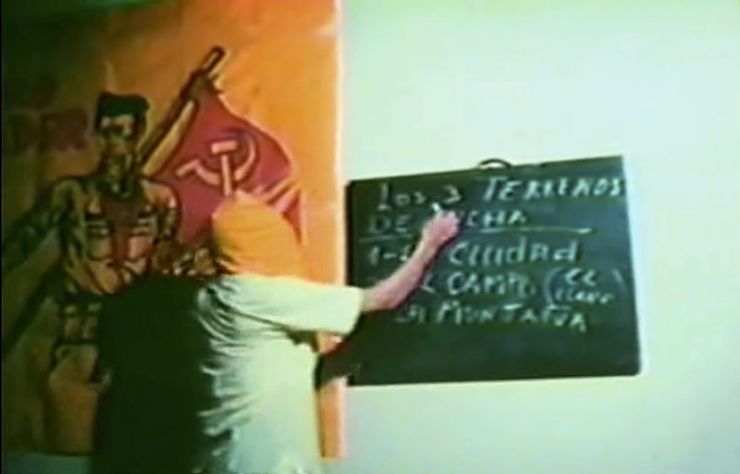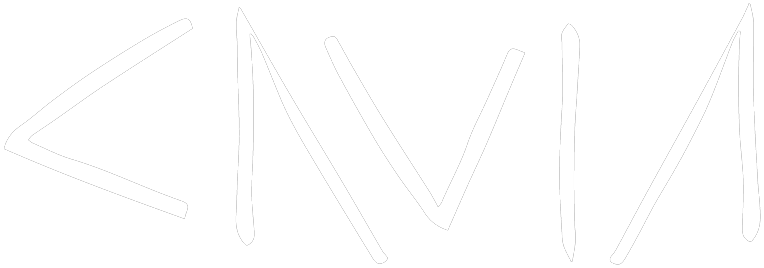27 september
GUERILLA FILMS
Rio Chiquito + El Pueblo Vencerá
NL Vanaf het einde van de jaren 60 tot het begin van de jaren 80 vond er in Latijns-Amerika een belangrijke en wijdverbreide beweging van politieke cinema plaats. In verschillende landen van het continent begonnen filmmakers low-budget films te produceren die mensen konden mobiliseren voor sociale actie. Daarbij werden corrupte regeringen ontmaskerd die met neokolonialistische krachten verbonden waren. In september verkennen Filmhuis Cavia en Filmtheater Kriterion deze periode van de Latijns-Amerikaanse cinema door films uit de Cineclub Vrijheidsfilms Collectie te presenteren – een collectief van filmmakers, programmeurs en sociale activisten van over de hele wereld die hun films in heel Nederland produceerden en verspreidden vanaf 1966 tot aan 1987.
Voor deze maand zullen we twee avonden organiseren met 16mm-prints uit de collectie van de Cineclub, bewaard bij het Internationaal Instituut voor Sociale Geschiedenis. Twee speelfilms en twee korte films, die het gevoel belichamen van een moment waarop politieke en sociale verandering voor de deur stond, die werden gezien als een reële mogelijkheid die mensen samen konden bereiken.
EN From the end of the 1960s to the beginning of the 1980s, a significant and widespread movement of political cinema took place in Latin America. In various countries of the continent, filmmakers started producing low-budget films that could mobilize people towards social action and expose corrupt governments aligned with neo-colonialist forces. In September, Filmhuis Cavia and Filmtheater Kriterion will explore this period of Latin American cinema by showcasing films from the Cineclub Vrijheidsfilms Collection ー a collective of filmmakers, programmers, and social activists from all over the world who produced and distributed their films throughout The Netherlands from 1966 until 1987.
For this month, we will host two evenings with 16mm prints from the collection of the Cineclub preserved at the International Institute of Social History. Two feature films and two short films that embody the feeling of a moment where political and social change was around the corner, seen as a real possibility people together could get.
Zondag 27 september, 19:30
CLASSIC
Guerrilla Films: Rio Chiquito + El Pueblo Vencerá

NL In de jaren ‘60 waren er verschillende guerrillabewegingen over de hele wereld. In diezelfde periode pleitte Frantz Fanon in zijn invloedrijke tekst Concerning Violence (1961) dat geweld een noodzakelijk instrument was voor dekolonisatie. Zijn reflecties helpen om de guerrillabewegingen die plaatsvonden in Latijns-Amerika, en de visie om mensen te bevrijden van een neokoloniaal systeem, te begrijpen. De films in deze serie zijn in het diepste geheim en van binnen uit de wereld van de guerrilla’s gemaakt. Elke film toont het verlangen naar de erkenning van hun politieke strijd en benadrukt door middel van verschillend beeldmateriaal waarom geweld als onderdeel van de oplossing werd beschouwd. Deze films kunnen worden gezien als underground propagandafilms.
EN The 1960s saw various guerrilla movements across the world. At the beginning of that same decade, in his seminal text Concerning Violence (1961), Frantz Fanon’s argued that violence was a necessary tool for decolonization. His reflection helps to understand the guerrilla movements that took place in Latin America, guided by the vision of freeing people from a neocolonial system. The films in this series were made within the world of the guerrillas and in total secrecy. Each film depicts the guerilla movements’ desire for the recognition of their political struggle and underlines through various visual discourses why violence was considered to be part of the solution. These films can be seen as underground propaganda films.
Rio Chiquito
Jean-Pierre Sergent & Bruno Muel | 1965 | 18' | Colombia | ES/FR spoken | EN live voice-over translation
EN This short documentary film depicts the first known moving images of the Revolutionary Armed Forces of Colombia (FARC) ーthe oldest guerrilla organization of the Western hemisphere, founded in 1964 and demobilized in 2017. Made by activists Jean-Pierre Sergent and Bruno Muel while they were living with the guerrillas for a month in the jungle, the documentary reveals the humble origins of a popular armed movement that developed into a huge army fueled by cocaine-trafficking, whose war against the Colombian government and paramilitary groups covered the countryside of Colombia in blood for decades.
+
El Salvador, El Pueblo Vencerá
Diego de la Texera | 1980 | 80' | El Salvador | NL subs
EN El Salvador, El Pueblo vencera delves into the world of the Farabundo Martí Liberation People's Forces (FMLN). With different kinds of visual resources ー including animation, and theatrical staging ー and an immersive aesthetic style, this film weaves a poignant narrative of the revolutionary history of El Salvador and the pervasive political and social struggles which ultimately culminated in a bloody a civil war spanning two decades that left 75,000 dead and thousands of others still missing.
